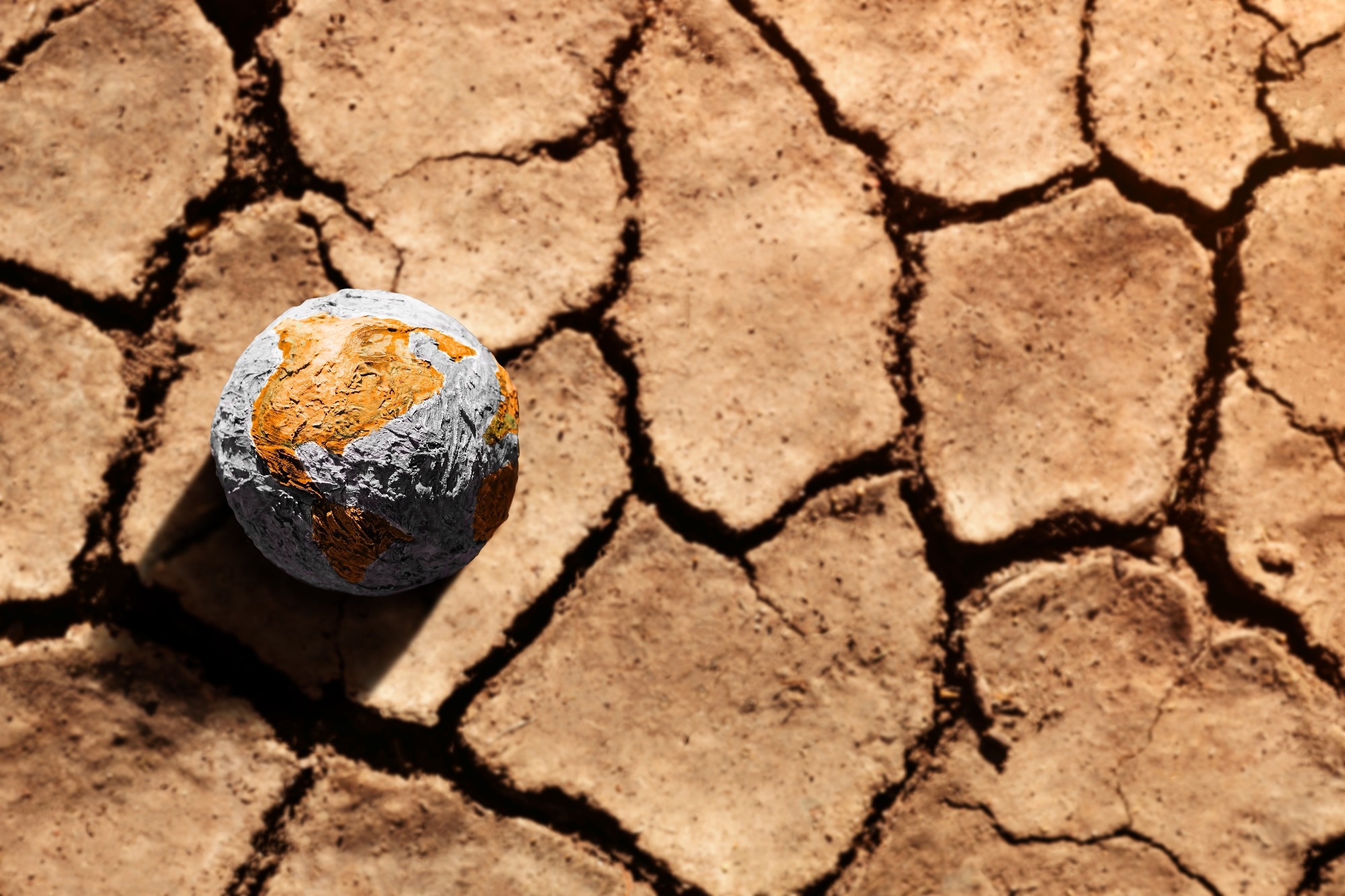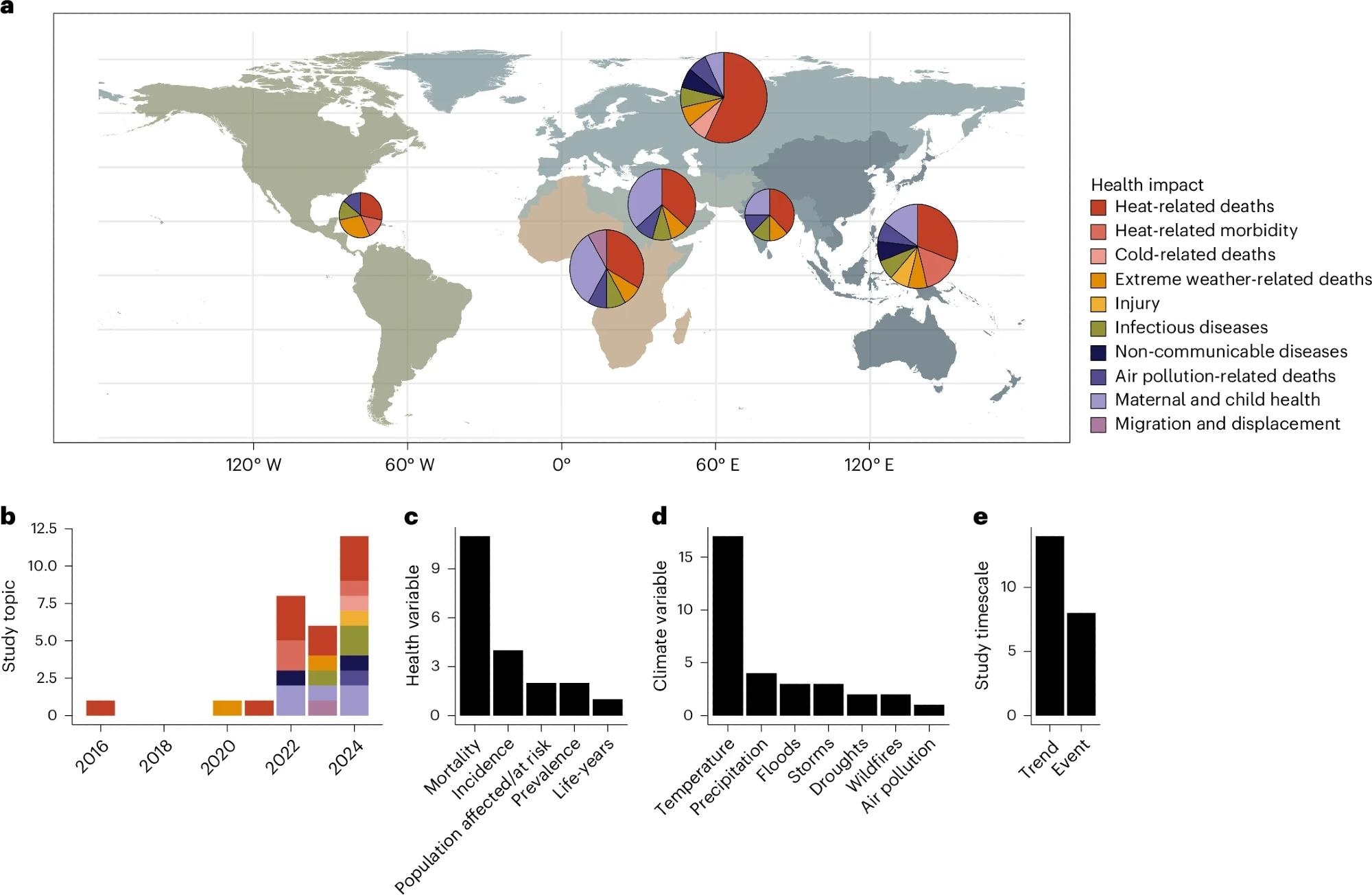A landmark analysis reveals the deadly toll of human-caused climate change, calling for urgent global health action and leadership from the regions most affected.

Brief Communication: Health losses attributed to anthropogenic climate change. Image Credit: Black Salmon / Shutterstock
In a recent Brief Communication published in the journal Nature Climate Change, an international team of researchers assessed health losses attributable to anthropogenic (human-caused) climate change, arguing that the findings should encourage policymakers to treat the climate crisis as a public health emergency.
Recent climate change is believed to transcend normal natural variability. Scientists concur that natural influences cannot explain these changes and that anthropogenic factors are responsible for about +1.3 °C of global warming from pre-industrial levels. This consensus was reached through quantitative methods grouped under the umbrella of climate change detection and attribution.
All health impact attribution studies to date, with a single exception, have indicated a considerable negative impact of climate change, with loss of life due to extreme weather or rising temperatures. Climate change-related mortality estimates at the community level have been as low as 10 deaths on a single day, while at the national level and above, they range from 370 to 271,656 deaths. Notably, research efforts have been heavily biased towards temperature-related risks (17 of the 20 studies reviewed), mortality (11 of 20 studies), and extreme weather events in Europe.
However, studies have diversified over time, addressing the burden of mortality due to wildfire-related air pollution, mosquito-borne viral diseases, population displacement by floods, and specific health risks experienced by children, including neonatal deaths, preterm births linked to heatwaves, low birthweight, and childhood malaria, and associated cognitive disabilities, which one study estimated could lead to over US$1 billion per year in lost lifetime earnings in China alone. The estimated economic impact of these losses is substantial, with a global study of extreme weather events estimating an average attributable loss of life valued at US$22.7 billion/year.

a, The distribution of research effort by health impact and geography of the affected population. The map is divided by the World Health Organization's global regions. Circle size is proportional to the number of applicable studies focused on each region, ranging from 7 in the Americas to 14 in Europe. b–e, The distribution of studies across years (b) and study focus (c–e). Some studies are in multiple categories.
About the study
In this Brief Communication, researchers estimated health losses attributable to anthropogenic climate change. First, they searched for end-to-end health impact attribution studies on PubMed and Web of Science databases using relevant keywords; these studies were defined as statistical analyses that quantified historical or present-day health risks and impacts resulting from anthropogenic forcings on the climate. The paper notes that these studies represent the “strongest available line of evidence” regarding the health impacts of climate change, due to their methodological rigor, and that they comprise only a small fraction of all climate–health research.
The team screened over 3,677 study abstracts and full texts of 552 studies, identifying only five eligible studies. In addition, they searched Google Scholar and preprint servers using ad hoc combinations of keywords related to health, climate change, and attribution. In total, 20 studies were identified, which performed end-to-end attribution of health outcomes to anthropogenic climate change.
All these studies included a statistical model that related health outcomes to climate variables and estimated the health impact of anthropogenic climate change. The researchers used the value of statistical life (VSL) to evaluate the economic value of deaths attributed to anthropogenic climate change, which monetizes lives lost by using estimates of how people make their own tradeoffs between income and the risk of mortality.
The team used the United States Environmental Protection Agency’s (EPA) value for the VSL, adjusted for inflation. They adjusted EPA VSL estimates of the US population to global populations using two approaches. First, they adjusted for the difference between the US and global purchasing power parity-adjusted gross domestic product per capita, which reduced the VSL estimate to US$3.2 million.
The second approach used the US-based value, viz., US$11.5 million, everywhere. Further, to supplement studies that produced global cause-specific estimates of mortality attributable to climate change, the team extrapolated mortality from two vector-borne diseases: malaria and dengue, based on preliminary results from preprint studies.
Findings
The researchers estimated that the annual attributable losses were at least US$10 billion using both approaches. The annual attributable adjusted losses were US$31 billion due to heat-related deaths in 43 countries, US$29.5 billion due to temperature-related neonatal deaths in 29 countries, and US$40.2 billion due to wildfire-related air pollution.
A preprint study estimated that multiple heat-related deaths from 1969 to 2018 in Switzerland could be attributed to specific companies of fossil fuels, led by Chevron, ExxonMobil, and Saudi Aramco, with 59, 54, and 53 deaths, respectively. Using the VSL approach, these estimates corresponded to losses of US$188.8 million, US$172.8 million, and US$169.6 million, respectively, attributable to each emitter.
The paper highlights that such “source attribution” studies are likely to have a unique relevance to legal actions against emitters and governments and can inform financing for loss and damage resulting from climate change.
The only comprehensive estimates of present-day global morbidity and mortality due to climate change were published two decades ago; these estimates were updated in 2014 to extend from 2030 to 2050. Attribution studies have been generally concordant with these projections for specific health impacts, such as mortality related to extreme weather and heat.
However, divergence from these projections was also evident. For instance, dengue fever-related deaths attributable to climate change have been an order of magnitude greater than projected. In contrast, malaria-related deaths have been significantly lower than expected. Notably, some major expected mortality sources still require reassessment. Moreover, no attribution study has focused on diarrheal diseases.
Conclusions
In sum, new health impact attribution studies continue to be published. They can provide more comprehensive insights into the impacts of climate change on morbidity, mortality, well-being, and life expectancy. Future studies could focus on the implications of climate change on infectious diseases, non-communicable diseases, the health effects of food insecurity, and mental health.
However, the paper issues a strong caution that future studies must also provide a more geographically representative view of climate change impacts and address the field's inequities. The authors note that research efforts are “almost entirely led out of global north institutions,” reflecting a “deeply inequitable and colonial system.”
Instead of just opening up data access, the paper argues that the best way to close this gap is to increase investment in research led by scientists and public health experts who are “living at the frontlines of climate injustice.”